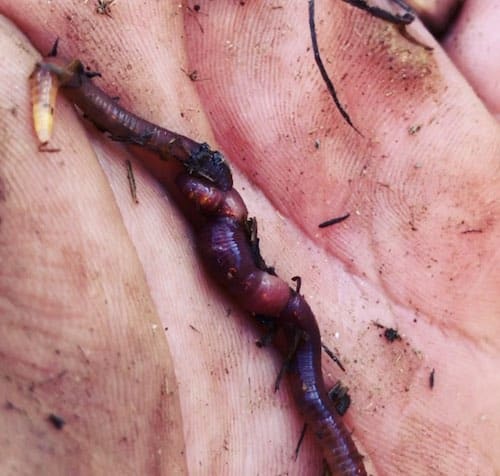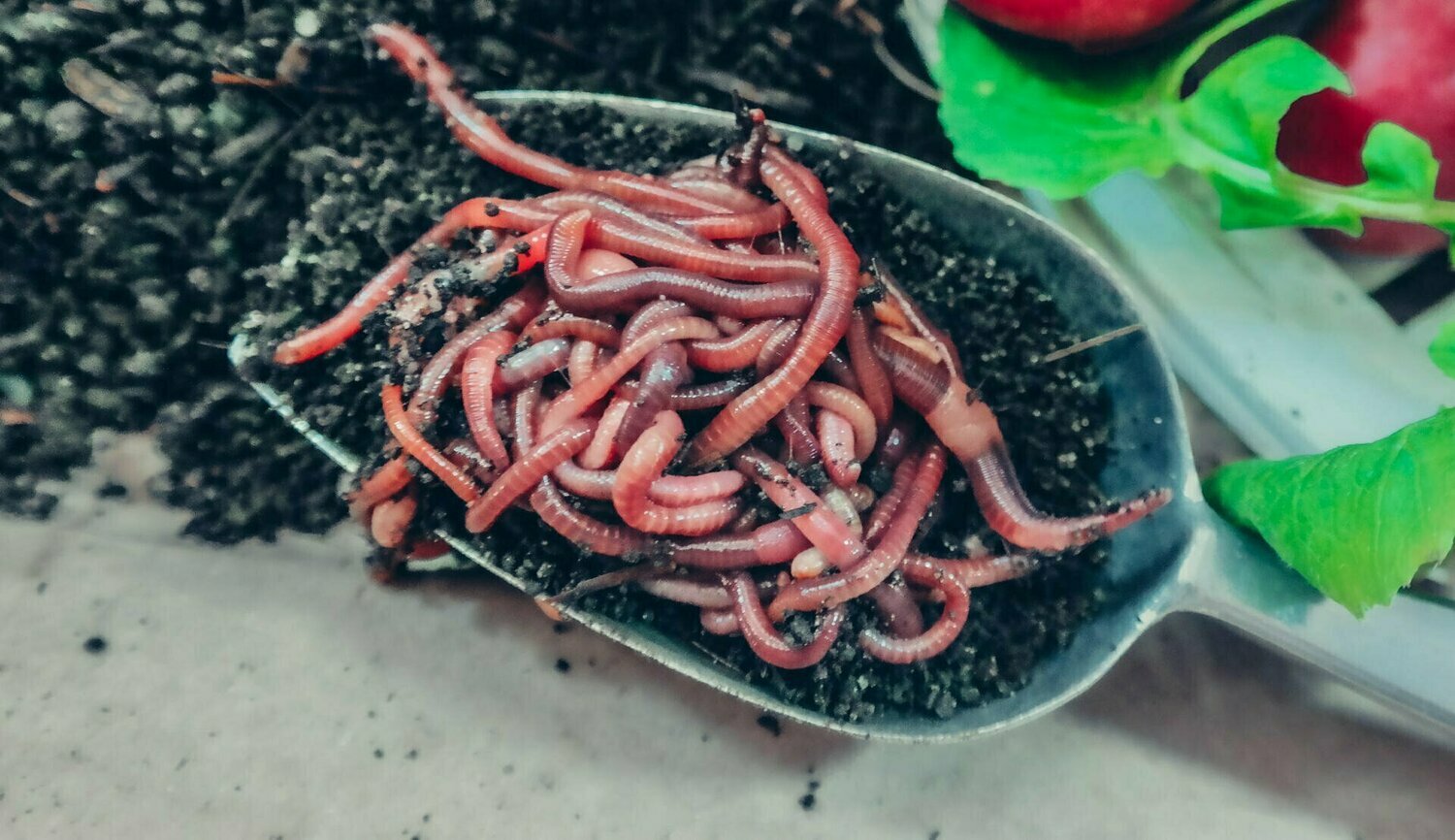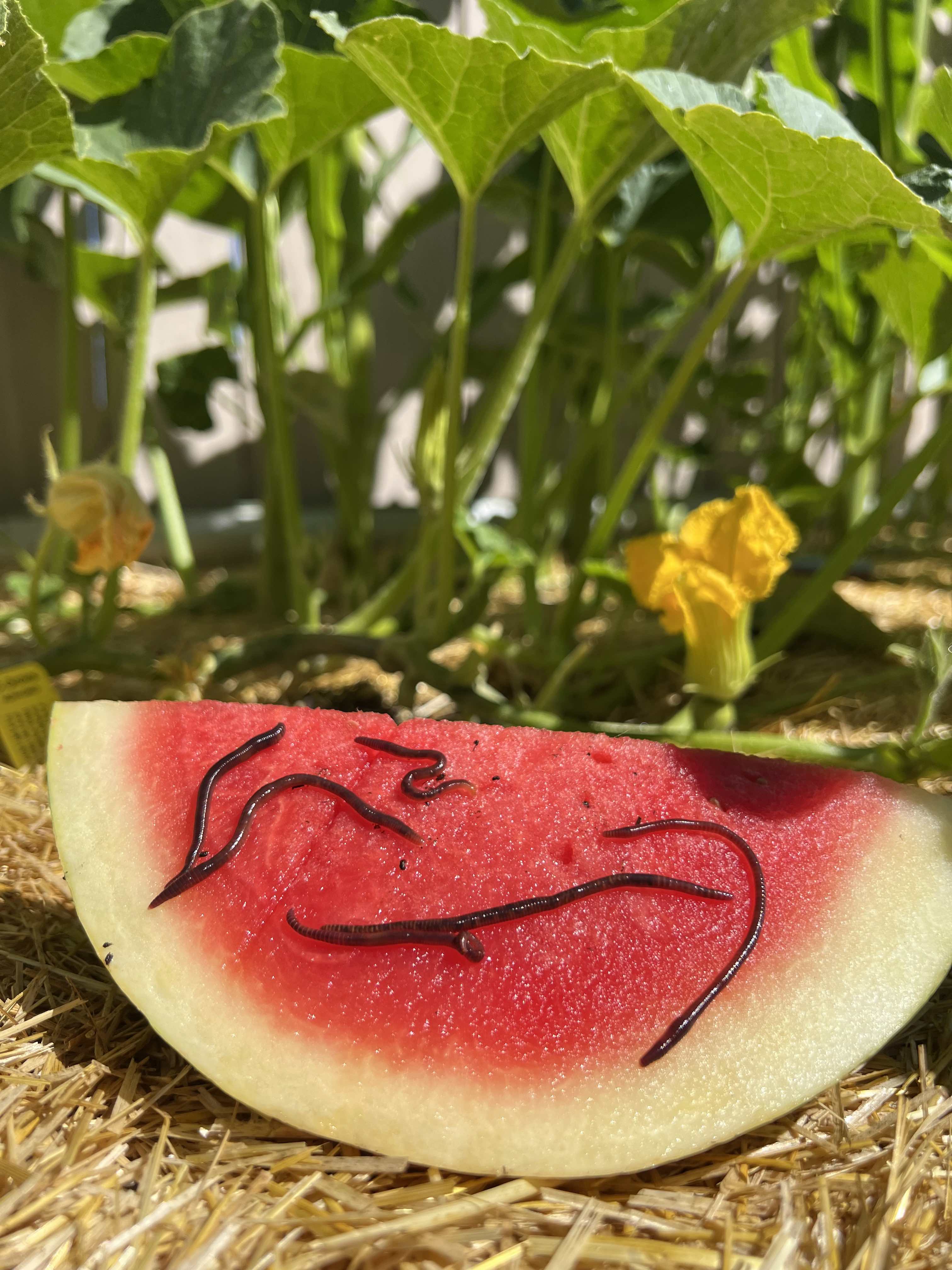Purchase Red Wiggler Worms - Ideal for Composting and Gardening
Purchase Red Wiggler Worms - Ideal for Composting and Gardening
Blog Article
Red Wiggler Worms Demystified: Opening the Tricks of Vermiculture for Greener Living and Nutrient-Rich Soil
In the realm of lasting methods for improving dirt top quality and promoting eco-conscious living, red wiggler worms play a crucial yet usually forgotten function. These humble animals have the exceptional capability to transform natural waste into nutrient-rich spreadings that function as a powerful all-natural fertilizer. By delving right into the world of vermiculture, one can reveal a huge selection of benefits that extend much past traditional composting approaches. Comprehending the complexities of taking care of these worms, enhancing their environment, and utilizing their castings can bring about a greener way of life and healthier soil for plants to prosper.
The Function of Red Wiggler Worms
Red Wiggler worms play an important role in composting systems by efficiently damaging down natural issue into nutrient-rich castings. These ravenous eaters take in a variety of natural materials, such as cooking area scraps, backyard waste, and paper products. As they feed, the worms' gastrointestinal procedures damage down the raw material right into a fine, dark, and nutrient-dense product referred to as worm castings or vermicompost.
The castings created by Red Wiggler worms are highly advantageous for dirt wellness and plant development. They are abundant in crucial nutrients like nitrogen, phosphorus, and potassium, which are important for sustaining healthy and balanced plant growth. Furthermore, worm castings consist of useful germs and enzymes that aid enhance dirt structure, boost water retention, and enhance nutrient uptake by plants.
Benefits of Vermicomposting

In addition, vermicompost, the nutrient-rich output of vermicomposting, serves as an outstanding organic plant food and soil conditioner. It boosts soil framework, improves dirt aeration, and increases soil wetness retention. These buildings add to healthier plants with more powerful root systems and better resistance to pests and illness. Vermicompost also enriches the dirt with necessary nutrients like phosphorus, nitrogen, and potassium, promoting plant development and overall soil fertility.
Additionally, vermicomposting supports lasting horticulture practices by providing a natural and chemical-free option to artificial plant foods. Red Wiggler Worms. This eco-friendly strategy not only enhances the soil yet additionally helps lower reliance on unsafe chemicals, advertising a greener and more lasting way of gardening
Establishing a Worm Container
When developing a worm container for vermicomposting, appropriate configuration is crucial to ensure the success of the composting procedure. The initial action in setting up a worm bin is picking an ideal container.
After including the bed linens, introduce the red wiggler worms to the bin. The worms need to then be supplied with food scraps such as fruit and veggie peels, coffee premises, and eggshells.
Consistently check the dampness levels and temperature in the worm container to make sure optimal problems for the worms. With appropriate setup and upkeep, the worm container will successfully transform organic waste into nutrient-rich garden compost for your plants and garden.
Collecting Worm Castings
To successfully collect nutrient-rich worm castings from your vermicomposting system, a methodical harvesting approach is vital. There are read here a few essential steps to follow to guarantee an effective procedure when it comes time to harvest the worm spreadings. To start with, stop adding fresh food scraps to one side of the worm container for a pair of weeks prior to gathering. This urges the worms to move sideways with fresh bedding and food, making it simpler to dig the castings from the opposite.

Troubleshooting Common Issues
Recognizing and attending to common obstacles that might occur throughout the vermicomposting process is critical for preserving a productive and healthy and balanced worm bin. One typical concern that vermicomposters encounter is overfeeding. Including excess food scraps can lead to a build-up of wetness and acidity in the worm bin, potentially hurting the worms. To stop this, feed the worms in small amounts, making certain that the food scraps are appropriately broken down prior to adding extra. Another problem is undesirable smells originating from the worm container. Foul scents indicate anaerobic conditions, normally brought on by overwatering or insufficient ventilation. To fix this, change the wetness degrees by including completely dry bed linens products like shredded newspaper or cardboard and increase aeration by turning the bed linen on a regular basis.
Furthermore, if the worm population is decreasing or the worms appear unhealthy, it can be due to environmental stress factors such as Learn More Here extreme temperatures or pH degrees. Monitoring these factors and making necessary changes is important for the wellness of the worms. By troubleshooting these common concerns without delay, vermicomposters can make certain a successful and smooth vermicomposting process while keeping a growing worm populace.

Verdict
Finally, red wiggler worms play a crucial function in vermiculture by breaking down natural issue right into nutrient-rich soil. article The benefits of vermiculture include greener living and enhanced dirt top quality. Establishing a worm bin is vital for effective vermiculture, and collecting worm spreadings provides important compost for horticulture. By recognizing and repairing usual concerns, people can unlock the secrets of vermiculture for sustainable living and healthier soil.
As they feed, the worms' gastrointestinal processes break down the organic issue right into a penalty, dark, and nutrient-dense product understood as worm spreadings or vermicompost.
The spreadings created by Red Wiggler worms are extremely helpful for soil health and plant growth. Including excess food scraps can lead to an accumulation of wetness and acidity in the worm bin, possibly hurting the worms.Additionally, if the worm populace is decreasing or the worms appear unhealthy, it can be due to ecological stressors such as extreme temperature levels or pH levels. Establishing up a worm container is vital for successful vermiculture, and harvesting worm castings supplies beneficial compost for gardening.
Report this page